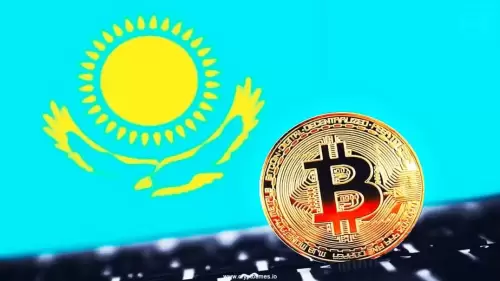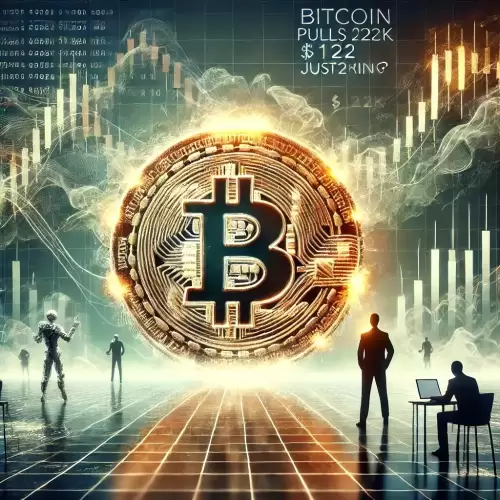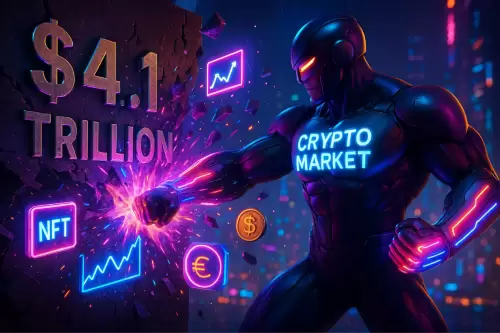 |
|
 |
|
 |
|
 |
|
 |
|
 |
|
 |
|
 |
|
 |
|
 |
|
 |
|
 |
|
 |
|
 |
|
 |
|
在新當選的總統李·濛濛(Lee Jae-Myung)的領導下,執政的民主黨推出了《數字資產基本法》。

South Korea is set for a dramatic reshaping of its digital asset landscape, potentially positioning itself as a global leader in cryptocurrency regulations.
韓國將重塑其數字資產格局,並有可能將自己定位為加密貨幣法規的全球領導者。
This transformation is unfolding rapidly with the ruling Democratic Party, headed by President Lee Jae-myung, introducing the Digital Asset Basic Act. The aim is to enhance transparency and foster competition within the crypto sector.
由總統李·詹·蒙(Lee Jae-Myung)領導的執政民主黨在迅速發展,引入了《數字資產基本法》。目的是提高加密貨幣部門內的透明度和促進競爭。
A cornerstone of this ambitious plan is the clear intent to facilitate stablecoin use and issuance.
這個雄心勃勃的計劃的基石是明確的意圖,目的是促進穩定使用和發行。
South Korea pushes for stablecoin regulations
韓國推動穩定法規
韓國推動穩定法規
Notably, President Lee’s campaign promise to permit domestic stablecoin issuance is now rapidly translating into concrete policy.
值得注意的是,李總統的競選承諾允許國內穩定發行簽發,現在正在迅速轉化為具體政策。
This proactive and defined approach to digital asset governance raises a crucial question – Will South Korea’s upcoming regulatory framework grant it a distinct competitive advantage over nations like the United States in the evolving global crypto industry?
這種積極且定義的數字資產治理方法提出了一個至關重要的問題 - 韓國即將到來的監管框架是否會給它與像美國這樣不斷發展的全球加密貨幣行業這樣的美國具有獨特的競爭優勢嗎?
Commenting on the same, Lee said,
李說,對此發表評論,
“We need to establish a won-backed stablecoin market to prevent national wealth from leaking overseas.”
“我們需要建立一個贏得的穩定穩定市場,以防止國民財富洩漏在海外。”
Additionally, beyond its significant focus on stablecoins, South Korea has been demonstrating a broader commitment to integrating cryptocurrencies into its financial landscape.
此外,除了其對穩定劑的重大關注之外,韓國還表現出更廣泛的承諾,將加密貨幣整合到其金融景觀中。
For this, President Lee Jae-myung’s administration is now exploring various avenues. Including a proposal for the country’s national pension fund to consider Bitcoin [BTC] and other crypto investments.
為此,總統李·鐘(Lee Jae-Myung)的政府現在正在探索各種途徑。包括該國國家養老基金的提案,以考慮比特幣[BTC]和其他加密投資。
Furthermore, the nation is actively investigating the feasibility of establishing a dedicated Bitcoin reserve.
此外,該國正在積極調查建立專用比特幣儲備的可行性。
What’s more to the bill?
該法案還有什麼?
South Korea has already begun to amend its anti-money laundering (AML) regulations, with the explicit goal of encouraging greater participation from foreign investors within its domestic crypto market.
韓國已經開始修改其反洗錢(AML)法規,其明確的目標是鼓勵外國投資者更多地參與其國內加密貨幣市場。
Hence, as nations worldwide grapple with the complexities of digital asset regulation, both the United States and South Korea are taking decisive steps to establish clear legal frameworks for stablecoins, albeit with distinct philosophies.
因此,隨著全球與數字資產監管的複雜性的努力,美國和韓國都在採取果斷的步驟,以建立明確的法律框架,為穩定的穩定框架,儘管具有獨特的哲學。
In the U.S, the GENIUS Act, currently undergoing a crucial Senate vote, primarily targets payment stablecoins.
在美國,目前接受重要參議院投票的《天才法》主要針對付款穩定。
It proposes a dual regulatory model, with federal oversight for large issuers boasting over $10 billion in circulation and state-level management for smaller entities. This approach aims to provide clarity without encompassing the entire spectrum of digital assets.
它提出了一種雙重監管模型,對大型發行人的聯邦監督擁有超過100億美元的發行和較小實體的州級管理。這種方法旨在提供清晰度,而不包含整個數字資產範圍。
Conversely, South Korea’s Digital Asset Basic Act, championed by President Lee Jae-myung, adopts a more sweeping approach. It intends to regulate a broader range of digital assets, including asset-linked tokens beyond just payment stablecoins, all covered by a comprehensive digital finance umbrella.
相反,由李·蒙(Lee Jae-Myung)總統倡導的韓國數字資產基本法案採用了一種更加廣泛的方法。它打算規範更廣泛的數字資產,包括與資產相關的代幣,而不僅僅是付款穩定的,所有這些都是由全面的數字金融傘所涵蓋的。
How is it different from the U.S GENIUS Act?
它與《美國天才法》有何不同?
While both legislative efforts mandate licensing requirements and seek to promote safer stablecoin adoption, their implementation strategies diverge significantly.
儘管這兩項立法努力都授權許可要求並試圖促進採用更安全的穩定者,但其實施策略卻大大不同。
South Korea centralizes all stablecoin issuance approval under its Financial Services Commission, a move that promises consistency but has drawn criticism from the Bank of Korea for concentrating regulatory power.
韓國將所有Stablecoin發行批准集中在其金融服務委員會下,此舉有望保持一致性,但已引起韓國銀行對集中監管權力的批評。
In contrast, the GENIUS Act introduces a more decentralized model, allowing for state-level regulation where appropriate.
相比之下,《天才法》引入了一個更加分散的模型,可以在適當的情況下進行狀態級別的調節。
Furthermore, a key difference lies in consumer protection specifics. The U.S. bill includes stringent transparency requirements, anti-fraud measures, and explicit mandates for anti-money laundering and know-your-customer compliance.
此外,關鍵區別在於消費者保護的細節。美國法案包括嚴格的透明度要求,反欺詐措施以及針對反洗錢和了解自己的遵守情況的明確要求。
While South Korea’s bill emphasizes transparency and reserve guarantees, it currently lacks the detailed rules around user-facing protections found in its American counterpart.
儘管韓國的法案強調透明度和儲備保證,但目前缺乏有關其美國同行中面向用戶的保護的詳細規則。
免責聲明:info@kdj.com
所提供的資訊並非交易建議。 kDJ.com對任何基於本文提供的資訊進行的投資不承擔任何責任。加密貨幣波動性較大,建議您充分研究後謹慎投資!
如果您認為本網站使用的內容侵犯了您的版權,請立即聯絡我們(info@kdj.com),我們將及時刪除。
-

- 哈薩克斯坦的加密飛躍:比特幣ETF和中亞的數字融資未來
- 2025-08-13 11:59:45
- 哈薩克斯坦通過現場比特幣ETF和創新營銷在中亞的加密貨幣場景中大放異彩。看看它的影響。
-

-

-

- 比特幣的瘋狂騎行:集會,回調,接下來是什麼
- 2025-08-13 09:00:19
- 比特幣最近在回調之前飆升至122,000美元。檢查市場量和鏈上數據,揭示了對比特幣集會和潛在未來的見解。
-

- 比特幣,Bitmax和機構需求:加密投資的新時代
- 2025-08-13 08:58:33
- 探索Bitmax的比特幣擴展和更廣泛的機構採用如何重塑加密貨幣景觀,這是由戰略投資和不斷發展的法規驅動的。
-

-

- 乘坐加密浪潮:NFTS,DEFI和市場高4.2噸
- 2025-08-13 08:30:46
- 探索加密貨幣市場的最新趨勢,包括NFTS的激增,Defi Innovations和主要見解,推動了該市場的售價4.2噸。
-

- 冷錢包:現金返還,加密貨幣和像老闆一樣的汽油費
- 2025-08-13 08:20:49
- 冷錢包改變了遊戲。獲得汽油,掉期等的現金返還。這是我們所知道的高加密費的終結嗎?讓我們潛入!
-































































